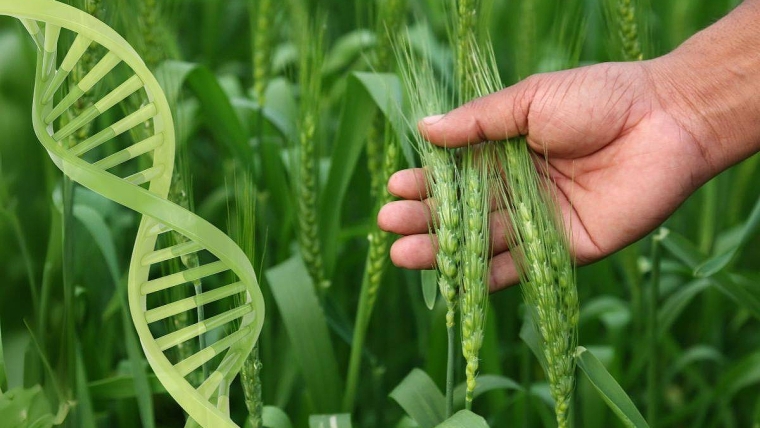
Parliament is considering updating the technicalities and definitions of "genetic modification".
The issue is a sensitive one, both for food producers who must compete on a world stage, and some urban voters.
The popular confusion over the definitions of "genetic engineering" or "genetic modification" are largely the result of misunderstandings, not scientific debate. We have been doing "genetic modification" since the start of agriculture and the domestication of animals.
FSANZ (Food Safety Australia and New Zealand), who regulate our food, consider gene editing is where the outcome could have been produced through conventional breeding and is not "genetic modification". But the organics industry considers these techniques "genetic modification".
The GM term isn't helpful scientifically. And it doesn't help that different countries define GM differently in their laws.
Consequently the proposed New Zealand legislation suggests using the term “regulated organism” to enable the focus to be on risk management rather than artificial labels and definitions.
The world has moved on since New Zealand famously outlawed "GMOs" in 1996. Millions of farmers in 26 countries use varying strategies on more than 200 mln hectares. (13.6 mln hectares are farmed in New Zealand's total 26.8 mln hectares of land area.)
'Precision breeding’ is a term that is currently being used to differentiate a newer technology which has been around for only about a decade. Precision-bred crops include a Sicilian rouge tomato with high healthy amino acid content that helps lower stress levels and blood pressure. It does not involve introducing any new DNA, is very targeted and precise, delivering changes similar to what can happen naturally over time.
The use of GM grass will not, contrary to popular opinion, stop our animal products entering markets. There is not a single country in the world which imposes such restrictions. And New Zealand already imports GM animal feed without restriction.
But without updating the current legislation, our ability to have access to new cultivars will be significantly reduced. And our trade opportunities diminished as a result.
Here is a summary of the work in progress that has informed the proposed legislative change.
Clear definitions of genetic technology and its implications have been presented to kiwifruit growers during a road show held recently. The roadshow, spanning kiwifruit growing regions from Northland to Nelson, was an initiative of New Zealand Kiwifruit Growers Incorporated (NZKGI). CEO Colin Bond said it is trying to have a conversation on a technology not always fully understood by growers, or the public.
NZKGF saw a need to support growers with informed views, covering both the opportunities and risks of genetic technology. This roadshow explored the co-existence of gene tech crops alongside organics, and how it would fit alongside other regulatory areas, such as biosecurity.

We welcome your comments below. If you are not already registered, please register to comment
Remember we welcome robust, respectful and insightful debate. We don't welcome abusive or defamatory comments and will de-register those repeatedly making such comments. Our current comment policy is here.